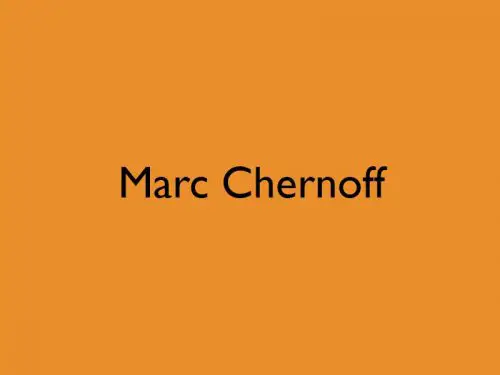ENFP – Campaigner Personality Type Traits: Are you a natural empathizer and a people pleaser?
Do you have a knack for constantly trying out new hobbies and getting pretty good at them in little to no time at all?

Inspiring your journey, one story at a time. #LifeFalcon.
Do you long for independence, have enthusiastic energy, and see possibilities all around you?
Well, you just might be an ENFP!
The ENFP personality type or the Campaigner personality is from the Diplomats group of the 16 personality test based on the Myers-Briggs Indicator and Carl Jung’s personality theory.
These social butterflies explore new ideas daily, channel their emotions into creativity, and give out more love and kindness than can ever be returned.
While they spend most of their days making use of their incredible conversation skills to charm those around them, now and then, they’ll retreat to their comfort place to regain balance in their lives.
With their morals set in place, ENFPs draw their own boundaries in life and will probably get very frustrated if you try to do it for them.
Some famous examples of ENFPs include Ron Weasley, Walt Disney, and Sandra Bullock.
Interested in knowing more about the ENFP personality?
Just keep on reading to find out all there is to know about the most introverted extroverts, aka, the ENFPs!
Table of Content
Personality aspects of an ENFP

A person’s personality type (aka ENFP-A/T) is essentially an acronym for their preferences in 5 different aspects of life which make up their personality.
These aspects are mind, energy, nature, tactics, and identity. Each of these aspects has 2 categories.
Mind– The mind trait describes how we engage and interact with our environment. This can either be Extroverted (E) or Introverted (I).
Energy- The energy trait describes how we view the world and process it, which is either Observant (S) or Intuitive (N).
Nature- The nature trait describes how we deal with our emotions and make decisions. The nature trait is either described as Feeling (F) or Thinking (T).
Tactic- The tactic trait describes how we tackle our daily tasks and can either be Prospecting (P) or Judging (J).
Identity- The identity trait describes our overall confidence in our abilities and decisions. The identity trait can either be Assertive (A) or Turbulent (T) and varies in every individual.
In ENFP these preferences are extroverted, intuitive, feeling, and prospecting.
Now let’s take a closer look into each of these traits tell us about the ENFP personality type.
Extroverted (E)
ENFPs are probably the most introverted extroverts out of the 16 personality types.
Even though they are energized by their surroundings and the people around them, every now and then, they need to take time off in solitude to recharge.
Intuitive (I)
This is the most dominant function in ENFPs. ENFPs prefer to focus more on ideas, theories, and concepts rather than the practical application of things.
However, this function of theirs extends beyond just that.
Their strong intuition enables them to read between the lines in conversations and see things from different people’s perspectives.
Additionally, their intuition contributes to their creativity and incredible brainstorming skills where they kiss traditions goodbye and take pleasure in exploring new ways of doing things.
However, because their focus is on forming deep connections with people, ENFPs tend to be a little out of touch with their physical surroundings and overlook details.
Feeling (F)
This trait describes how ENFPs prefer to focus on their emotions and values rather than objective thinking when it comes to making decisions.
ENFPs have a very good understanding of where their morals lie.
They use this moral code to make decisions based on what works best for them and what matters most to them rather than focusing on other’s needs.
ENFPs get quite frustrated when they try to think too logically about things and shift their focus from their inner values to suit the happiness of others.
However, as they get older and learn to balance other’s needs with theirs, they can get pretty good at maintaining very healthy relationships.
Prospecting (P)
The prospecting trait suggests that ENFPs function better in an environment that allows for flexibility.
ENFPs are not the biggest fans of being controlled, whether it’s in their workplace or a relationship.
They get upset when they are forced to live in an environment that suppresses their creativity and prevents them from exploring as many options as they would like to.
ENFPs also aren’t the best at implementing structure or strict routines into their lives. So naturally, when they try to enforce this, it can get pretty stressful (and awkward) for them and those around them.
Strengths of an ENFP

Ability to read a room and Observant
ENFPs are not only insightful thinkers who can sense the energy of a room the moment they walk in but also pretty aware of everything going on in their surroundings, especially when it comes to people around them.
ENFPs make use of this skill in careers such as teaching, coaching, or facilitating in any way, where they are supposed to make sure that everyone in a room is responding well to whatever they’re communicating.
Excellent communicators
Their intuition allows ENFPs to read between the lines in conversations, notice shifts in people’s moods, and spot when someone’s feeling low or offended which makes them very empathetic conversationalists.
Even though there’s a part of them that could use this to their advantage to manipulate people, ENFPs’ strong moral code usually prevents them from doing this.
Instead, they’re able to use this to steer the conversation in directions that make people feel most comfortable.
This not only contributes to their excellent people skills but also allows them to communicate with people effectively in a way that forms really good bonds with them.
They can act as mediators in controversial or heated conversations where two people might be on completely different pages. ENFPs can combine their viewpoints and explain things more clearly.
AN ENFP loves getting to know people and will probably bounce from topic to topic until they figure out what works best when it comes to communicating with you.
They prefer not to linger in the small- talk section for too long and instead focus on deeper, more meaningful conversations.
Most of the conversations with ENFPs tend to flow very very naturally without feeling forced or awkward, even with abrupt topic changes.
Stick to their values
ENFPs tend to seek a deeper meaning in everything they see and by combining their experiences and intuition, they can use that insight to work out their moral code, aka what they believe is right and wrong.
Once they have formed their strong set of values, they make sure to stick to them.
However, not only do they implement these values within themselves, but also use them as motivation to stand up for injustices around them and try to put an end to practices they deem cruel in any way they can.
Creative/imaginative
Refusing to give into traditions without trying something new first, ENFPs tend to be very creative people who use their imaginations to think out of the box.
They take risks and try something that’s never been done before with the confidence that they’ll make it work and the mindset that the more original, the better.
Know how to relax
This is probably one of the most self-benefiting strengths of ENFPs.
Unlike most extroverts, ENFPs know when it’s their time to recharge their social battery and spend time by themselves, away from others.
They relish their self– care moments and as much as they enjoy being around people, they make the most out of these moments to recharge, rejuvenate and relax their body and minds.
Weaknesses of an ENFP

Staying focused
In their excitement to try new things and analyze all the possible ways of completing a task, ENFPs often spread themselves too thin as they try to juggle more work than they can realistically handle.
They get distracted very easily which makes it harder for them to stay focused on one thing, whether it’s a work task or even a relationship.
This focus is also influenced by an ENFPs interest in the subject matter. The more interested they are, the more dedicated they’ll be.
However, once that interest extinguishes, it’s replaced by boredom, which immediately drives an ENFP away.
Internalizing other people’s problems
ENFPs have an unfortunate problem of being so invested in other people’s problems and worries that it can start to affect their mental health as well.
They soak up the energy around them, and when this energy is plagued with negativity, stress, anxiety, and depression creep into their lives.
Overthinking and Oversensitive
Remember how we talked about ENFPs being very observant of their surroundings?
Well sometimes, especially under stress, they either see things that aren’t there or perceive slight changes in behavior in a negative light.
They overanalyze people’s behaviors and if you do anything of the ordinary (or speak in a slightly different tone), they’ll probably assume that they’ve messed up and that you’re mad at them.
So a heads-up for the next time you’re thinking about criticizing an ENFP, because if you’re not delivering it with kindness, then you’re hurting their feelings and giving them a free pass to a night of overthinking and self- critiquing
Hypocrisy and contradiction
ENFPs appreciate multiple viewpoints, so their values are relative and conditional to moods and situations they are experiencing, which means they often seem to contradict themselves and behave hypocritically in different situations.
This contradiction also adds a duality to their nature, for example when their constant desire for companionship contradicts their love for independence.
The grass is always greener
ENFPs often feel tempted to abandon what they have in pursuit of whatever better comes along.
Even though they are loyal in their commitments, until they do find something/ someone they’re very interested in, they’ll be hard to pin down in careers or even relationships.
They are always in pursuit of ideals and can be restless and dissatisfied with what they have which might eventually lead to them betraying their current partners due to self-indulgence.
We often find them falling into the trap of jumping from project to project, job to job, or relationship to relationship because they see exciting opportunities all around them.
Even though they are in search of fulfillment, deep down they would like to settle down and take part in what they have rather than constantly looking for upgrades.
ENFPs in Relationships

When it comes to relationships, even though ENFPs love meeting new people and getting to know them, they might initially have a hard time committing to one person.
This is because they like to keep their options open and dislike the thought of missing out on their chances with other people they might never even have met yet.
However, once they commit to a relationship or a person, they will be determined to form a very strong emotional bond by learning everything they can about their partners, as soon as they can.
They will not only be deeply involved in their partner’s life but also go out of their way to make sure that they’re perceived as caring people.
They’ll surprise you with gifts and won’t mind long-distance relationships. ENFPs will make sure you feel appreciated and comfortable enough to express yourself as openly as you want.
However, the funny thing with ENFPs is that even when you’re in a relationship with them, as open and enthusiastic as they seem, they’ll probably be internalizing a lot of their feelings and it can take a while before you actually get to know them at their core.
In a relationship, an ENFP doesn’t always have to be doing something exciting, however, they do desire to learn and grow together with their partners.
What they’re not looking for in a relationship, is competition mixed into this growing and learning process. They want to do things together without the stress of a challenge, and definitely won’t appreciate you questioning every move they make.
They need someone to listen to their crazy ideas and encourage them to bring them to life.
However, they don’t appreciate pushers. ENFPs loathe control and restrictions as much as they crave and love support from partners.
Every now and then, they’ll need to take time off to self- reflect, get their thoughts back in order, and will give you the space to do the same.
ENFPs enjoy both, meaningful conversations and sharing crazy ideas. So while a good sense of humor is always appreciated in a relationship, you should be able to put on a serious face with them and listen to their ideas objectively whenever needed.
The personality type that most ENFPs get along best with is an INFJ or the Advocate, however, other potential matches include ENFJs, INTJs, ENTJs, and ISTJs.
ISTJs are a good match for when an ENFP is looking for someone to help them out with their chaos and bring a bit more structure into their lives.
ENFPs as Friends

When it comes to friends, an ENFP’s friendship love often knows no bounds.
They are selfless givers who not only make themselves emotionally available but also physically try to help their friends as much as they can.
Often this generosity remains unmatched which can make ENFPs feel like their feelings aren’t being reciprocated in their friendships.
ENFPs’ incredible people skills enable them to start a conversation with just about anyone they come across, (and they eventually end up befriending them).
However, they are especially good at getting introverts out of their shells and really getting to the core of what matters most to their friends.
Bagging any sort of judgment (unless something clashes with their values), ENFPs are very easy to open up to about anything.
However, this does mean that sometimes people can rely too much on ENFPs, to the point of their exhaustion.
On the other hand, while an ENFP does appreciate the support from friends, they are also capable of being their own supporters when it comes to dealing with deep issues and feelings.
Avoiding conflict as best as they can, and doing everything to make sure everyone around them is happy, ENFPs are some of the best people you can have in your life, who will not only make you feel important but also provide for some of the best conversations and moments.
ENFPs as Parents

ENFPs are extremely devoted and loving parents who love using exciting new experiences to bond with their kids and teach them life lessons.
They are pretty easy-going with their kids for the most part, because to them, building a strong relationship with their kids, one in which they are perceived as friends rather than guardians is more important to them than anything else.
While this does mean that the emotional support provided to their children is at an all-time high, the disciplinary actions and restrictions tend to be shoved under the rug.
ENFPs believe in giving their kids the freedom and space to learn and grow on their own, which might be harder for kids who do need structure and some sort of routines in their lives.
ENFPs at work

Using their creativity, work ethic, and networking skills to their advantage, ENFPs are not only able to get into whatever career they want but also excel in it.
They are always working towards development and growth, and loathe redundancy and stagnancy.
ENFPs are excited by every possibility in life and they are the kind of people who will dabble into a bit of everything.
On one hand, this means that they are open to trying out new careers, putting in the effort, and doing well, but on the other hand, they also find it hard to stick to one job.
Unless the job allows for flexibility, demands creativity, and is constantly evolving in terms of the work and people, ENFPs aren’t likely to stick around.
As with most personality types, ENFPs simply won’t do well in strictly monitored careers such as the military where they feel like their independence is being taken away from them.
When working on their projects, ENFPs do tend to simply get the ball rolling and leave the details of boring, administrative tasks to someone else.
If not kept in check, they might very easily hop from one project to another, so they might need a little guidance and support when it comes to seeing a project to the end.
As co-workers, not only do they form great bonds with their peers, but tend to be extremely popular, great at coordinating with others, bringing ideas together, and resolving conflicts when working on a team.
Their natural popularity also makes them great at leadership positions, where instead of following a dictatorial approach, they are more likely to have a very friendly work environment.
By giving their employees the freedom and flexibility to get work done on their own terms (as long as they’re following the main guidelines), they expect the same courtesy to be extended to them.
Along with that, they appreciate originality in work rather than doing things the old fashioned way.
Some of the best-suited careers for ENFPs include teaching, psychology-related careers where they get to devote time to studying human behavior, journalism, politics, event planning, etc.
Conclusion
Do you know anyone in your life who matches the description of this intriguing, yet lovable personality type?
Hopefully, now you’ll have a much better understanding of their character and behaviors.
If you have an ENFP in your life, make sure to watch out for the moments where they retreat into solitude for a little too long and reach out to them when they seem too far away (emotionally).
However, for the most part, all you have to do to make them happy is to simply cherish and love them as much as they do you.



















